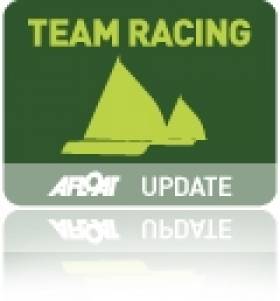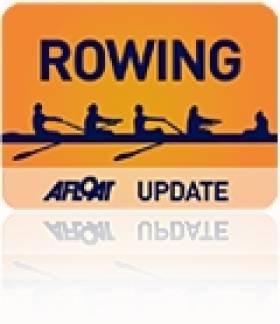Displaying items by tag: Schools Regatta
#school team sailing – Racing in the shadow of a gale warning Schull Community College won the Irish Schools Team Racing Championships on home waters at the weekend.
14–teams competed in the event drawn Munster, Leinster, Connaught and two teams from the UK.
Reduced to a one day affair due to 30–knots winds from the south east, the hardy West Cork locals beat visitors Maudlin College (MCS) of Oxford 2-0 in the finals sailed on Saturday afternoon.
Second overall was Presentation College (PBC) in Cork.
Leinster School sailing champions Kilkenny College were third.
Teams were divided into two groups from there ranking at the regional events, with Schull 1, Rochestown College, St Andrews, Schull 2, Gonzaga, Rice College and MCS from the UK in Group 1.
PBC, Kilkenny, Belvedere, Schull 3, Scoil Mhuire, Mt Anville and Morespeed from the UK in Group 2.
Racing took place in 18 of the new team racing boats supplied for the Team Racing Worlds 2011 called the TR 3.6, with little or no breakages.
42 races were run in quick succession with the top two from each group going forward to the Semi Finals and Finals.
In the first Semi Final MCS (UK) were matched against Kilkenny College and the second Semi Final PBC were matched against Schull 1
Kilkenny and PBC matched up for the play off for Silver and Bronze, with PBC taking the Silver 2-1.
Both MCS and Schull were the winners with two wins each and went head to head for the overall result both these teams have meet each other before in two Finals over the last two years at the British Schools Team racing Nationals with one win each, so this was an important final for both teams. Schull came out the winners with two wins, putting them as favourites for the British Schools Nationals in July.
1st Schull Irish National Champions
2nd PBC
3rd Kilkenny
4th Joint/ Rochestown and Belvedere
Overseas Trophy MCS
Skibbereen and Universities' Regatta Fall Foul of Weather
# ROWING: Skibbereen Regatta and the Irish Universities’ and Schools’ Championships, scheduled for Sunday and Saturday respectively, have been postponed. Faced with the forecast of high winds and rain at the National Rowing Centre, the organisers of both events opted to seek a new date. The Domestic Events Committee of Rowing Ireland will make any decision on a new position in the calendar for the regattas.
Skibbereen Regatta was set to open the eFlow Grand League series. The event had a huge entry and was to run from 7.15 am to 6.15 pm.






























































